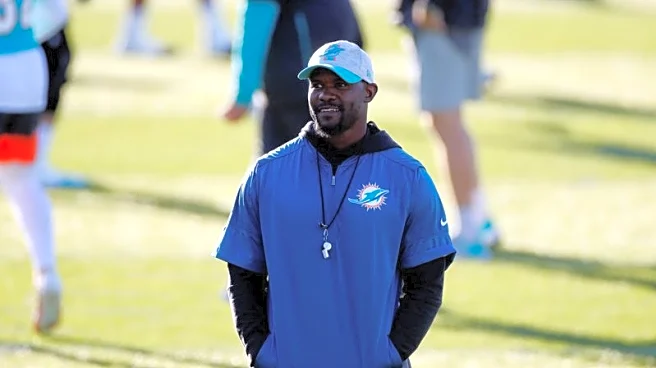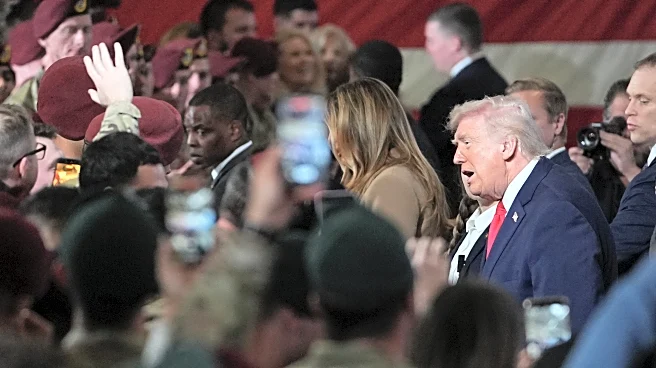What's Happening?
The Lebanese army is under increasing pressure from the United States and Israel to disarm Hezbollah, a militant group backed by Iran. This comes after a US-brokered ceasefire aimed at ending hostilities between Israel and Hezbollah. The Lebanese army has
increased its presence in southern Lebanon, deploying around 9,000 soldiers near the Israeli border. Despite a government-approved plan to dismantle Hezbollah's military infrastructure, the army faces challenges due to limited resources and equipment. The US and Israeli demands for disarmament have raised concerns about potential escalation of Israeli strikes. The Lebanese army is seen as a stabilizing force in the country, which is currently facing a financial crisis.
Why It's Important?
The pressure on Lebanon's army to disarm Hezbollah is significant due to the group's historical role in resisting Israeli forces. Hezbollah's refusal to surrender its weapons poses a challenge to regional stability and peace efforts. The Lebanese army's ability to comply with US and Israeli demands is crucial for maintaining peace in the region. Failure to disarm Hezbollah could lead to increased military tensions and potential conflict, affecting Lebanon's security and its relations with neighboring countries. The situation also highlights the geopolitical complexities involving US, Israeli, and Iranian interests in the region.
What's Next?
The Lebanese army is expected to continue its operations to dismantle Hezbollah's infrastructure, but faces logistical and political challenges. The international community, including the US, may need to provide additional support to Lebanon's army to ensure successful disarmament. The situation could lead to further diplomatic negotiations involving Lebanon, Israel, and other stakeholders. The potential for escalation remains if Hezbollah continues to resist disarmament, which could impact regional peace efforts.

















